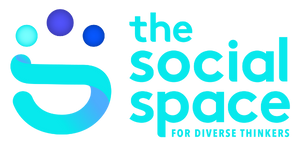RESEARCH EVIDENCE
According to the Social Skills Training Institute (2017), multiple University and community trials have shown SAS to be effective in improving children’s emotion regulation and social skills when delivered in clinic, school and home contexts.
- Results from the initial clinic-based randomised controlled trial of the SAS Small Group Program showed 76 per cent of children aged 8 to 12 years with Asperger’s Syndrome who had clinically significant delays in social functioning improved to showing social skills within the range of typically developing children on a parent-report measure (Beaumont & Sofronoff, 2008).
- Improvements in social skills and emotion regulation occurred across home and school and were maintained 5 months after the program ended.
- An independent evaluation of the SAS Small Group Program conducted in Autism Spectrum Australia (ASPECT) Satellite Classes across five NSW school districts showed that SAS led to improvements in the emotion regulation and social skills of students with Autism, with treatment gains maintained one year after the program ended (Einfeld et al., submitted).
- A Queensland-based trial of SAS was conducted in mainstream schools comparing the effectiveness of a variant of the SAS Small Group Program to the SAS Computer Game Pack. Results showed that both interventions led to improvements in the emotion regulation and social skills of students with Autism, although the small group intervention led to greater treatment gains (Beaumont, Rotolone & Sofronoff, 2015). The small group program participants also displayed reductions in child anxiety, improvements in student behaviour and enhanced parent and teacher self-efficacy.
- A pilot evaluation conducted at the University of Queensland has demonstrated the effectiveness of the SAS Small Group Program (clinic delivery) for children who have social-emotional challenges, but who do not have a diagnosis of Autism. This trial included students with learning difficulties, ADHD, Anxiety Disorder and those without any diagnosed psychiatric disorder. SAS was as effective for these children as for those with Autism (as demonstrated in previous trials), with significant improvements in children’s emotion regulation skills, anxiety levels and social functioning shown. Results from this trial are currently being prepared for publication.
- A new randomised control trial (RCT) published May 2022 has been added to the SAS evidence base, bringing the total to 19 publications and 4 RCTs over the past 17 years. The latest RCT has explored the effect of the SAS small group program for 8-12 year olds in 3 hospital-based outpatient clinics in New York. The study found that the SAS group program resulted in increased emotion regulation and social skills in children across a variety of diagnoses (Autism, ADHD, and/or Anxiety Disorders) compared to usual treatment. The positive outcomes were also shown to remain at six-month follow up. The findings reflected the benefits of the SAS Small Group Program for promoting skill generalization and its tailored use of multi-modalities for children with diverse learning styles and goals.
- Research into the SAS Small Group Program has been conducted in Australia, USA, Europe and Canada and a further two very exciting major research studies are in preparation for publication.
To read more, click here: https://www.sst-institute.net/
